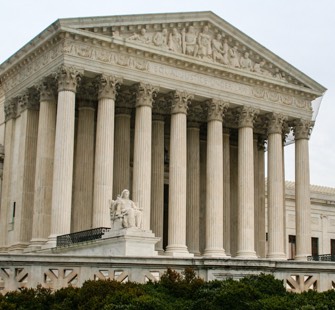Federal Circuit rejects Google’s petition for rehearing
On April 4, 2017, the United States Court of Appeals for the Federal Circuit issued a brief order denying panel rehearing and denying rehearing en banc in Unwired Planet, LLC v. Google, Inc.
Google filed a petition for both panel rehearing and rehearing en banc. A response to the petition was invited by the court and filed by Unwired Planet, LLC. No reason for the denial of Google’s petition was provided by the Federal Circuit, which is typical. The original panel decision, authored by Judge Reyna and issued on November 21, 2016, found that the Patent Trial and Appeal Board (PTAB) was using the wrong definition for what constitutes a covered business method (CBM) patent.
A covered business method patent is defined as a patent that claims a method for performing data processing or other operations used in the practice, administration, or management of a financial product or service. Specifically excluded from the definition of a covered business method patents are those that relate to technological inventions. See 37 C.F.R. 42.301(a). To determine whether a patent is for a technological invention, the PTAB is supposed to consider whether the claimed subject matter recites a technological feature that is novel and unobvious over the prior art, and solves a technical problem using a technical solution. See 37 C.F.R. 42.301(b). Nevertheless, the PTAB had been finding patents to be CBM patents when they covered matter incidental to a financial activity or complementary to a financial activity. For more see Federal Circuit slams PTAB.
PTAB names Medtronic CardioVascular Chief Patent Counsel as new PTAB Chief
 The United States Patent and Trademark Office (USPTO) recently announced the appointment of David P. Ruschke as the next Chief Judge for the Patent Trial and Appeal Board (PTAB). Ruschke will begin his new role at USPTO headquarters in Alexandria, VA, on May 23, 2016.
The United States Patent and Trademark Office (USPTO) recently announced the appointment of David P. Ruschke as the next Chief Judge for the Patent Trial and Appeal Board (PTAB). Ruschke will begin his new role at USPTO headquarters in Alexandria, VA, on May 23, 2016.
“The Patent Trial and Appeal Board plays a critical role in the patent ecosystem, especially since the launch of post-grant trials authorized in the America Invents Act of 2011,” said Under Secretary of Commerce for Intellectual Property and Director of the United States Patent and Trademark Office Michelle K. Lee. “David’s breadth of experience in global patent opposition proceedings and his deep understanding of intellectual property positions him perfectly to lead our Board well into the future.”
“Director Lee has assembled a highly talented and hard-working team at the USPTO. I am excited to have the opportunity to join the talented judges and staff of the PTAB as we work together to serve America’s inventors,” said Ruschke.
05.20.16 | Patent Issues, USPTO | Gene Quinn
New Post Grant Rules Become Effective, No Changes to Motions to Amend
 On April 1, 2016, the United States Patent and Trademark Office published final rules in the Federal Register that relate to post grant proceedings. These new final rules went into effect on May 2, 2016, and amend the existing PTAB trial practice rules pertaining to inter partes review (IPR), post grant review (PGR), covered business method (CBM) review, and derivation proceedings brought into being by provisions of the America Invents Act (AIA).
On April 1, 2016, the United States Patent and Trademark Office published final rules in the Federal Register that relate to post grant proceedings. These new final rules went into effect on May 2, 2016, and amend the existing PTAB trial practice rules pertaining to inter partes review (IPR), post grant review (PGR), covered business method (CBM) review, and derivation proceedings brought into being by provisions of the America Invents Act (AIA).
In a nutshell, these new rules change existing practice by allowing new testimonial evidence to be submitted with a patent owner’s preliminary response, adding a Rule 11-type certification for papers filed in a proceeding, allowing a claim construction approach that emulates the approach used by a district court following Phillips v. AWH Corp., 415 F.3d 1303 (Fed. Cir. 2005) for claims of patents that will expire before entry of a final written decision, and replacing the current page limit with a word count limit for major briefing. These final rules are the culmination of a process started two years ago. For more information on the changes taking effect, please see Patent Office amends PTAB Trial Practice Rules.
Many had hoped that the Office would make it easier for patent owners to successfully amend patent claims in post grant proceedings, but the Office stood firm.
05.5.16 | Inter Partes Review, Patent Issues, Post Grant Review, USPTO | Gene Quinn
Supreme Court will decide whether BRI or Phillips standard applies to IPR claims
 During patent examination, pending patent claims are given the broadest reasonable interpretation (“BRI”) that is consistent with the specification, as would be understood by one of ordinary skill in the art. See Phillips v. AWH Corp., 415 F.3d 1303, 1316 (Fed. Cir. 2005).
During patent examination, pending patent claims are given the broadest reasonable interpretation (“BRI”) that is consistent with the specification, as would be understood by one of ordinary skill in the art. See Phillips v. AWH Corp., 415 F.3d 1303, 1316 (Fed. Cir. 2005).
The Patent Office applies the broadest reasonable interpretation in virtually all circumstances. It is, however, true that at least one situation where the Patent Office does not use broadest reasonable interpretation is when a reexamination of a patent is undertaken and reexamination will not be concluded until after the patent term has expired. The position of the USPTO is that, in this situation, a patent could not be changed because the term has expired; therefore, the only remaining “life” a patent has would be in litigation because the statute of limitations for a patent infringement action is six years. Thus, the USPTO applies the Phillips standard. (Further discussion of this advanced topic goes beyond the scope of this article, which is intended to be a primer on the broadest reasonable interpretation standard.)
Finjan shows patent owner can prevail at IPR institution stage
 Finjan Holdings, Inc. (NASDAQ: FNJN), the parent of wholly owned subsidiary Finjan, Inc., recently announced that the Patent Trial and Appeal Board (PTAB) for the United States Patent & Trademark Office (USPTO) denied six of Symantec Corporation’s petitions for inter partes review (IPR) of Finjan patents.
Finjan Holdings, Inc. (NASDAQ: FNJN), the parent of wholly owned subsidiary Finjan, Inc., recently announced that the Patent Trial and Appeal Board (PTAB) for the United States Patent & Trademark Office (USPTO) denied six of Symantec Corporation’s petitions for inter partes review (IPR) of Finjan patents.
“This is an unprecedented response by the US Patent Office,” stated Phil Hartstein (left), President and CEO of Finjan, upon learning of the decision of the PTAB.
The word “unprecedented” gets thrown around all too frequently, but the use of the word here does seem entirely appropriate. That Finjan would prevail in six separate IPR institution decisions relating to the same patent litigation seems nothing short of extraordinary given that the PTAB is instituting 80% of IPR petitions, and given how slanted IPR rules are against the patent owner, particularly at the institution stage.
03.9.16 | Inter Partes Review, Patent Issues, USPTO | Gene Quinn


No Comments
04.24.17 | CAFC, Patent Issues, posts, USPTO | Gene Quinn